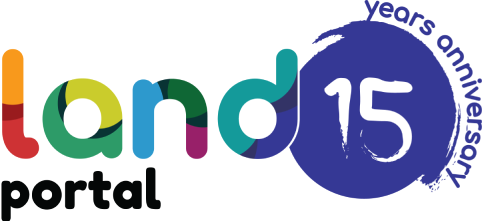In Colombia, milk yield gaps among dairy systems are large and farms with better feed quality and sustainable cattle management practices are more productive. Cattle farming is responsible for about 15% of the Colombian greenhouse gas emissions (GHGE), therefore, sustainable mitigation strategies for dairy farms can help to reduce the climate impact. Silvo-pastoral systems (SPS) and improved pastures (IP) are recognised strategies to transform dairy systems by enhancing cattle productivity, reducing climate change impact, and increasing farm profitability.
Search results
Showing items 1 through 9 of 12443.-
Library ResourceJanuary, 2023Germany
-
Library ResourceJanuary, 2023Germany
The Orinoquia region in Colombia is home to diverse ecosystems, including forests and various agroecological zones, but extensive cattle ranching poses a significant challenge as it contributes to deforestation and threatens the region's valuable forest resources. To address this issue, there is a growing interest in promoting low-carbon land use and practices that increase adaptation and resilience to climate change. Climate-smart cattle farming (CSCF) integrates adaptation, resilience, and mitigation strategies to ensure sustainable and profitable productivity.
-
Library ResourceJanuary, 2023Germany
Leucaena diversifolia (Ld) is a legume species that has received little attention in terms of its nutritive value, methane (CH4) emissions, and impact on meat quality. To address this gap, a study was conducted to compare the performance, CH4 emissions, and fatty acid content of steers grazing on a monoculture of tropical grass Urochloa hybrid cv. Cayman versus a combination of Cayman and Ld.
-
Library ResourceJanuary, 2023Germany
The cattle sector is key to the economy of several Latin American countries, however, it strongly contributes to environmental degradation through the emission of greenhouse gases and deforestation, among others. The objective of this study is to analyze the long- and short-term relationships of variables such as population growth, expansion of pastureland, and deforestation with cattle greenhouse gas emissions and beef and dairy production for 15 Latin American countries.
-
Library ResourceJanuary, 2023Spain
Amidst global efforts to combat deforestation, achieve net-zero carbon goals, and comply with rigorous certification standards, agro-industries are facing mounting pressure to substantiate their commitment to sustainable practices. The European Union Deforestation-Free Regulation (EUDR) introduces an extra layer of scrutiny, compelling the adoption of a strategic approach to address environmental concerns.
-
Library ResourceJanuary, 2023Germany
This Initiative addresses the Sustainable intensification (SI) of Mixed farming systems (MFS). By SI, we mean the production of more food on the same piece of land while reducing the negative environmental impact. MFS cover about 2.5 billion ha of land globally. In the developing world, MFS supply around 75% of milk, 60% of meat, and 41–86% of cereals consumed. These farming systems occur in nearly all agro-ecological zones, with an enormous variety of climatic and soil conditions and livelihood patterns. In SEast Asia the initiative is working in Bangladesh, Nepal and Laos.
-
Library ResourceJanuary, 2023Italy
In the last 25 years, almost 50Â million hectares of primary forest have been lost due to deforestation. Numerous international initiatives such as the Bonn Challenge and the New York Declaration on Forests have set ambitious goals to restore degraded and deforested lands by 2030. Realizing global commitments on forest and landscape restoration (FLR) will require the establishment of billions of trees on millions of hectares of degraded land to address the triple crisis of biodiversity loss, climate change and failing food systems.
-
Library ResourceJanuary, 2023Iceland
-
Library ResourceJanuary, 2023Sweden
The integration of AI in agricultural management presents a world of opportunities and challenges. We have explored various aspects, from addressing inadequate information and limited capabilities to bridging the digital divide and concerns about job displacement. As we navigate this transformative journey, it is essential to prioritize the user, embrace human-centered design, and ensure that AI-powered solutions are not only feasible but also sustainable for farmers in diverse regions.
-
Library ResourceJanuary, 2023France
This report reviews trends and availability of sex-disaggregated data on various aspects of gender and CSA, including agricultural innovation, decision-making, time use and access to resources. It uses data collected by the CGIAR and other organizations to analyse gender trends at global, regional and national levels.
Land Library Search
Through our robust search engine, you can search for any item of the over 64,800 highly curated resources in the Land Library.
If you would like to find an overview of what is possible, feel free to peruse the Search Guide.

